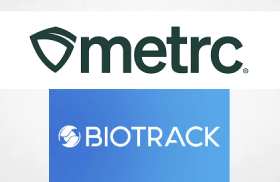The IRS recently issued tax guidance to the cannabis industry in the form of frequently asked questions (FAQs). These FAQs were followed up with the announcement by the IRS of a marijuana industry website that provides additional tax-related information for taxpayers engaged in the cannabis business.
This guidance follows a Treasury Inspector General for Tax Administration report in which the agency estimated that the IRS had failed to collect millions of dollars in unassessed taxes against state-licensed cannabis businesses that claimed improper business expense deduction under Section 280E of the Internal Revenue Code. The report also called for a coordinated, nationwide compliance plan to assist cannabis businesses with their tax compliance responsibilities. These FAQs and marijuana website were likely issued in response to that suggestion.
While one goal of this guidance was to provide taxpayers with useful information regarding the taxation of the cannabis industry, another likely goal was to remind these taxpayers that they are subject to the same filing requirements and tax-paying obligations as every other taxpayer. The issuance of this additional guidance following on the heels of the somewhat critical TIGTA report is also likely a signal by the IRS that it intends to step up its enforcement efforts as it applies to the cannabis industry.
These FAQs also serve to remind cannabis businesses that while they are prevented by Section 280E of the Code from claiming credits and deductions, they are still allowed to reduce their gross income by subtracting the cost of goods sold calculated pursuant to Section 471 of the Code from their gross receipts. Despite these reminders, the guidance does not provide further insight into the ongoing litigation between marijuana businesses and the IRS related to the proper computation of cost of goods sold. The IRS’s new website does provides links to information on how cost of goods sold should be calculated under Section 471 of the Code, as well as resources on the application of Section 280E of the Code.
The FAQs addressed the following issues:
- My business is a marijuana dispensary that I operate in compliance with my state’s laws. The federal government considers this an illegal activity. Do I have the same income and employment tax filing obligations as any other business?
- If I can’t fully pay the amount I owe, are payment plans available that I can afford?
- What penalties or additions to tax could a participant in the marijuana industry be subject to if adjustments are made during an income tax audit?
- Will penalties under section 6662 be proposed if an audit ends with the IRS proposing adjustments for a participant in the marijuana industry?
- I operate a business that consists of selling marijuana. Can I claim deductions to determine my taxable income?
- What do I need to do for cash payments over $10,000 concerning information returns?
The website contains sections on:
- IRC §280E and the Marijuana Industry
- Income Reporting
- Cash Payment Options
- Large Cash Amounts
- Estimated Payments
- Records
This new guidance reminds cannabis businesses that they have the same tax payment and deposit obligations as any other taxpayer. The IRS understands that not all cannabis businesses have access to bank accounts and noted that some IRS service centers can accept cash payments. The guidance regarding payment of taxes in cash (here and here) notes that taxpayers wishing to pay their taxes in cash can set up appointments with the IRS in advance, although the guidance suggests that appointments will need 30 to 60 day advance notice. For example, if the taxpayer is a weekly or biweekly employment tax depositor, it will be difficult for them to meet their every week or two week tax deposit requirements when each appointment requires a 30 to 60 day notice unless they have a standing weekly or biweekly of appointment in which to make the cash payment. While this cumbersome approach may avoid penalties for late payment by non-bank taxpayers, this new guidance did not provide any rules whereby such penalties could be abated if the IRS was unable to accommodate a cash taxpayer.
If you need any additional information regarding these tax issues, please contact either Ron Eppen, Steve Good, Mark Neuberger or Rohan Virginkar, the Co-Chairs of the Foley & Lardner Cannabis Industry Team.















